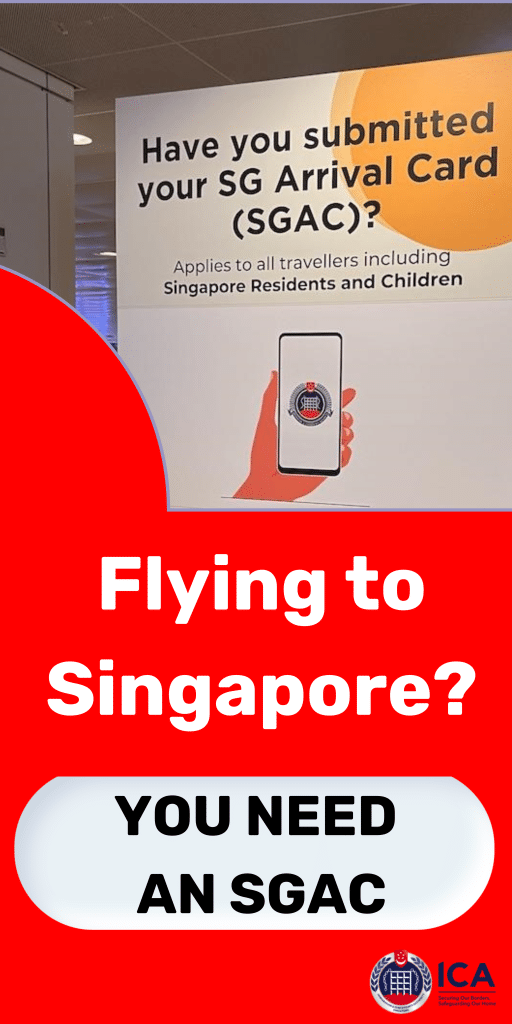Singapore is a popular travel destination known for its cleanliness, safety, delicious food, and stunning architecture. As a global hub, Singapore attracts millions of international visitors each year who come for business, tourism, or to visit family and friends.
With this high volume of visitors, many wonder about the specifics of getting a Singapore visa and whether it gets stamped on your passport.
In this comprehensive blog post, we’ll cover everything you need to know about Singapore visas and passport stamps.
Overview of Singapore Visas
There are several types of visas available for travel to Singapore. The most common are:
- Tourist visa – For short trips and leisure travel. Valid for up to 30 days.
- Business visa – For business trips, meetings, conferences, etc. Valid for up to 3 months.
- Employment visa – For foreign workers and expats residing long-term in Singapore. Typically valid 1-2 years.
- Student visa – For foreign students enrolled in school or university. Valid for the duration of the academic program.
- Transit visa – For passing through Singapore on the way to another destination. Valid up to 96 hours.
Citizens of certain countries may be eligible for visa-free entry to Singapore for tourism and business purposes. The length of stay varies based on nationality. Check with the consulate to find out if you qualify.
Visa Application Process
Applying for a Singapore visa typically involves submitting an application form, valid passport, photos, travel details, and required documentation (bank statements, employment verification letter, etc.) There is a visa application fee that must be paid as well.
For employment visas, the sponsoring company in Singapore handles much of the application process. Tourist visas can be obtained easily online through agencies like Singapore Visa or VFS Global.
Visa requirements and policies frequently change so it’s best to check the Singapore Ministry of Foreign Affairs website for up-to-date details.
Do Singapore Visas Get Stamped in Your Passport?

The short answer is yes, Singapore visas (with a few exceptions) do get stamped directly into your passport once approved and issued.
The stamped visa will indicate the visa type (tourist, business, student, etc.), length of stay, number of entries allowed, and expiration date. It will also include your photo and passport details.
Here are some notes on Singapore visa stamps:
- Visa stamps will be affixed to a blank visa page of the passport. Make sure you have enough empty pages available.
- Visa conditions such as length of stay and expiration cannot be altered once stamped.
- Lost passport with visa stamp means you’ll need to reapply for a new visa.
- Certain visa types may receive stamps on arrival rather than prep-issued stamps.
The exceptions when you may not receive a physical stamp are:
- E-visas – Issued electronically without stamps. Must print out visa confirmation.
- Visa-free entry – No visa required so no stamp needed.
In summary, having a valid Singapore visa in your passport is crucial. The visa stamp itself acts as proof of your authorized entry and stay in Singapore. Be sure to keep your passport safe and the stamp legible.
Arriving in Singapore With a Visa
When you arrive at a Singapore border checkpoint (airport, land crossing, or seaport), you will undergo immigration clearance. The immigration officer will:
- Verify your passport and stamped visa.
- Check the validity dates and visa type.
- Match your face to the visa photo.
- Ask about your purpose and length of stay.
- Stamp your passport entry permit with date of arrival.
As long as your documents are in order, you should have no issues passing immigration. From there you can officially start your visit to Singapore!
For certain nationalities, biometric scans (fingerprints and photo) may also be required at arrival. Be cooperative and patient if asked to provide biometric data.
Maintaining Singapore Visa Validity
Once in the country, be careful not to overstay your visa. The stamped expiry date indicates the last day you are permitted to stay. Extensions may be possible but often come with hassles and fees.
If you applied for a single-entry visa, you would need to get a new visa to return to Singapore. For multiple-entry visas, you can come and go as long as it remains valid.
Make sure your passport has sufficient validity too, as your Singapore visa is tied to the passport it’s stamped in. Generally your passport should be valid at least 6 months from the visa expiry date.
It’s the traveler’s responsibility to maintain legal status in Singapore. Keep track of your visa validity dates and passport expiration to avoid problems.
Conclusion
To summarize, Singapore visa stamps in your passport are an essential part of the immigration process. All major visa types – including tourist, business, employment and student – do get stamped in your passport prior to arrival in Singapore. The exception are e-visas and visa-free entries which do not require stamps.
Upon arrival, Singapore immigration officials will verify your passport, visa stamp, biometrics and other documents. As long as your visa is valid, you’ll be granted entry. Be sure to monitor your visa expiry and passport validity during your stay in Singapore.
References
Singapore Ministry of Foreign Affairs Visa Information
Singapore Immigration & Checkpoints Authority
VFS Global Singapore Visa Information

Goh Jun Cheng is the chief staff writer for SingaporeAirport.com. Jun Cheng graduated with a degree in journalism from Nanyang Technological University in Singapore.
He has over 5 years of experience writing about aviation, tourism, and lifestyle topics relevant to locals and visitors in Singapore. His articles provide insights into the rich culture, cuisine, and attractions of Singapore. Jun Cheng is an avid traveler who has visited over 15 countries.
When he is not writing or traveling, he enjoys photography, trying new foods, and hiking. As a longtime Singapore resident, Jun Cheng is passionate about sharing hidden gems and perspectives about his home country.



